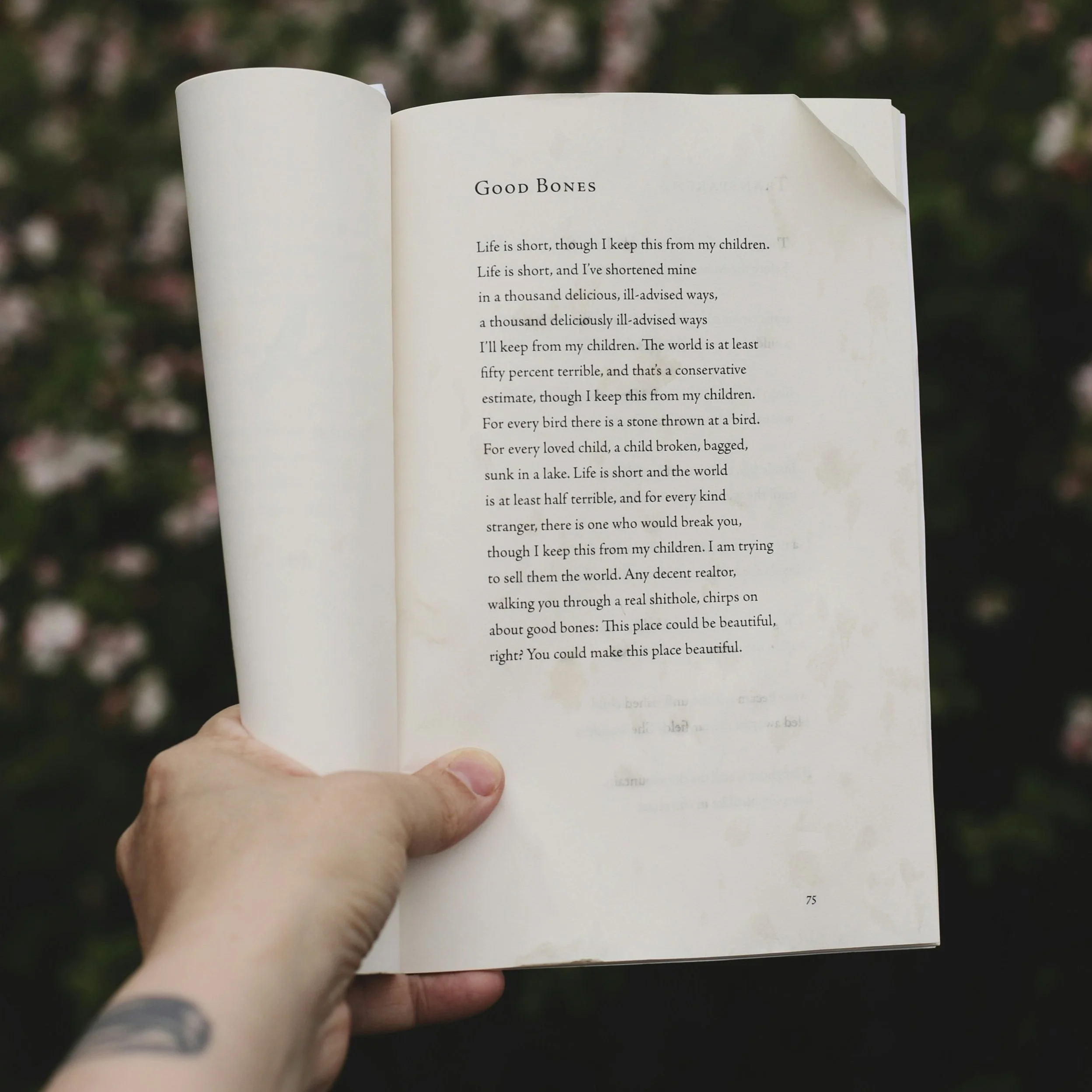Hands Reaching Out
This is a re-released blog by Nicola Mason where reflects on reading and the hands that reach out from the pages to guide and inspire us.
“The best moments in reading are when you come across something – a thought, a feeling, a way of looking at things – which you had thought special and particular to you. Now here it is, set down by someone else, a person you have never met, someone even who is long dead. And it is as if a hand has come out and taken yours.
”
I love that quotation and I know it holds resonance for many people. My own journey into adult Christian faith began when I was studying the poetry of George Herbert and Gerald Manley Hopkins for A level. It felt such a relief to the depressed teenager that I was that these poets had also felt suicidally depressed, unhappy, and angry and that they felt free to speak of it to God who, by implication, must be more accepting of such feelings than the adults in my own life. It made me long for a relationship with such a God, a relationship as real as theirs seemed to be, and it comforted me to roll around in my head lines from their poetry that touched and expressed my own condition.
“The earth is full of masks and fetishes,
what is there here for me? are these like him?
Keep company with him and you will know:
no kin, no likeness to those empty eyes.
He is a stranger to them all, great Jesus.
What is there here for me? I know
what I have longed for. Him to hold
me always.”
Years later, when I stumbled across the letters of Ann Griffiths, her experience spoke to me across two and a half centuries and a different religious tradition to reach out a hand in solidarity. Here was a soul sister who wrote of being ‘gnawed by doubts’, of feeling dry and out of touch with God and with herself, and who yet could write lines of poetry of breathtaking loveliness, rejoicing in the beauty of the Saviour she loved. I could identify with those see-sawing spiritual states and also with how theological reflection could excite her devotion. Her writing gave me hope I was not alone and helped me to trust the truth of my own experience.
In the early days of my faith journey, an older Christian friend encouraged me to discover those writers in the communion of saints, past and present, who could befriend and support me as I travelled, and when I was a novice in a religious community I began the practice of keeping what we called a ‘bits book’, writing down poems and quotations I had discovered or been given that had resonance for me. Those books (there are several now) remain a precious encouragement and inspiration to me in times of difficulty and dryness, but also in consolation (it’s not all gloom and doom within my soul, nor within those pages!)
“Put up with yourself. It is very hard, but it is really a very perfect act of love to God.’”
Some of the entries are from the letters of Spiritual Directors from earlier centuries whose advice is often still very pertinent now. Three of my favourites are Abbot John Chapman, John Pierre de Caussade and the Abbé Henri de Tourville, always humane and compassionate if sometimes unsparingly truthful, and frequently seasoning their advice with humour. Chapman provides one of my favourite pieces of advice (passed on to me by my former novice guardian) given to someone struggling on many fronts, feeling out of touch with God and not knowing what to do: ‘Put up with yourself. It is very hard, but it is really a very perfect act of love to God.’
Many of my ‘bits’ are now inscribed on my mind and soul and, as a director, I sometimes find myself offering them to directees now.
The chain of helping hands continues – I wonder who reaches out their hands to you from the printed page?
Nicola Mason
Nicola trained on Encounter and has a passion for its slow formation process, held within a supportive community. Nicola is drawn to one to one accompaniment. She lives this calling both as a spiritual director, a companion for the faith journey towards a deepening of our relationship with God and a freedom to be our true selves; and as a singing teacher, another great journey towards discovering our true, free voice.
Here are some questions that you may find helpful in prompting your own reflections, or to help someone that you walk alongside with theirs:
Which writers or texts have most spoken to your soul, and why?
What lines or passages do you return to in times of dryness or doubt?
Have you ever felt “a hand reach out” to you through something you’ve read? How did it feel to have that sense of solidarity with someone from centuriesbefore?
When has literature acted as both a mirror—reflecting your own experience—and a doorway—inviting you into something more?
What might God be revealing to you through the words that stay with you?
What does “putting up with yourself” look like in your current spiritual season?
Do you keep a journal or ‘bits book’ of meaningful quotes or reflections? If not, would you consider starting one?
We’re building a community version of this practice: a shared collection of words that held us.
Add your favourite quote or poem that has touched your faith or spiritual life here.


